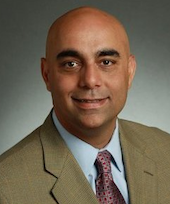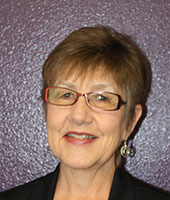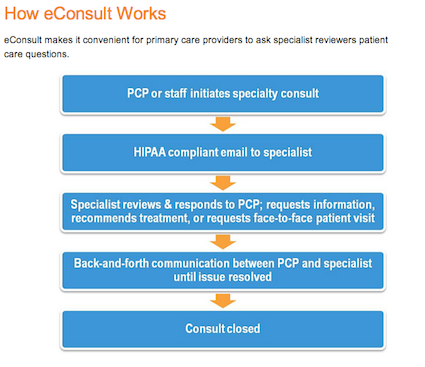Electronic Consultations Break Down Barriers for Medicaid Patients in L.A. County
SC CTSI-Supported Evaluation Project Reveals Increased Patient Access to Medical Specialists While Reducing Appointments.
Although the Medicaid program helps millions of low-income families and children get essential health care, patients with the government-sponsored coverage still face significant barriers when it comes to seeing doctors in the medical specialties.
But in an era when so much of everyday life takes place in the virtual realm of computers and digital communications, an evaluation study supported by the Southern California Clinical and Translational Science Institute (SC CTSI) showed how the same technologies can give Medicaid patients better access to medical specialists, with less hassle for the patients and lower cost for the providers.
Called eConsult, for electronic consulting, the study used a combination of computer and digital communications tools to enable primary care providers to consult with specialist physicians when in-person meetings are difficult to schedule or, perhaps, unnecessary.
A cross-institutional team from USC, L.A. Care Health Plan, SynerMed and Partners in Care Foundation showed how an electronic consulting system provided Medicaid patients greater access to specialists like dermatologists, endocrinologists and nephrologists.
Findings at a Glance
Increasing access
More Medicaid patients received specialist care (100% of study participants).
Reducing time
Referred cases were assisted in three days or less, versus several months.
Cutting cost
71% reduction in face-to-face specialist appointments for some specialties. 55% of cases were resolved electronically; an electronic consultation with a specialist costs half of an in-person appointment.
Adoption across L.A. County
Not-for-profit L.A. Care Health Plan provided $1.5 million to expand eConsult in Los Angeles County, called eConsult-LA.
Department of Health Services eConsult-LA program services more than 1,000 primary care providers and offers 10 + specialties.
Within 18 months, over 45,000 electronic consults have been exchanged between primary care providers and specialists.
eConsult has become the mandated process for the Independent Physician Association and its member safety-net clinics.
Locked out of the specialist's office
A recent study of children with Medicaid & Children’s Health Insurance Program (CHIP) coverage, published in the New England Journal of Medicine in 2011, found that specialists were five times less likely to accept Medicaid-CHIP than private coverage. Among those who did accept public insurance, wait times for appointments averaged 22 days longer than for the privately insured.
Many traditional specialist referrals result in high rates of no-shows. The limited availability of specialists, especially for Medicaid patients, often means patients must commute farther to see those doctors, leading to conflicts in transportation and work that can prevent them from making it to the appointment.
Susan Enguidanos, MPH, PhD, assistant professor in the USC Davis School of Gerontology, was excited to evaluate a program that wants to change and improve the referral process. With the eConsult study, she and her research colleagues – Alex Li, MD, Sajid Ahmed, and Sandy Atkins – looked at three specialist referrals in their study population: dermatology, nephrology, and endocrinology.

Susan Enguidanos, MPH, PhD
Electronic Consults give specialists more flexibility
L.A. Care trained private physicians and staff in the use of the eConsult and new referral workflow system, which included digital cameras and software. A primary care physician seeking a dermatologist’s consult on a patient's skin rash, for example, would take a digital photograph of the affected area and send it electronically to a dermatologist, along with other pertinent medical information. Lab reports and other test results would be similarly transmitted to the specialist. Transmission occurred in seconds, and the specialist response came within days – not the weeks typically required for an in-person appointment.
"This way the specialist can immediately identify and triage the condition without necessarily requiring the patient to make another appointment and another trip to the doctor," said Enguidanos. "From the photo the specialist might be able to simply tell the primary care provider how to handle treatment, or if they're more concerned, they can get the patient into their office fast."
And if it's nothing serious, Enguidanos added, they can quickly put everyone's mind at ease and prevent unnecessary appointments or additional tests.
Electronic consults also give specialists more flexibility to review cases before, during or after usual office hours. For the dermatology, endocrinology and nephrology consults in the study, eConsult simplified and accelerated the communication and referral process between primary care physician and specialist.
“We think of it as an electronic 'curbside consult' where physicians dialog with their specialist colleagues to virtually address patient needs,” said Sajid Ahmed, Chief Information and Innovation Officer at MLK, Jr. Hospital, who helped design the system and ensure its success while he was Director for Health IT and Innovations at L.A. Care.

The outcome was a substantial boost in the speed and number of patients involved in the study who received specialist care. "Typically, with eConsult, the specialists involved were turning around cases in three days, versus several weeks for referrals handled the traditional way," said co-investigator Sandy Atkins, VP, Institute for Change at Partners in Care.

In one three-month period, fully 100 percent of the patients referred by primary care providers through the eConsult process were reviewed by a specialist electronically, as compared to only 57 percent of traditionally referred patients. Additionally, investigators found the electronic consults resulted in a 71percent reduction in face-to-face specialist appointments, mainly because of the 55 percent of cases that were resolved electronically, without the need for a specialist appointment.
For managed care health providers, this type of store-and-forward telehealth technology can save significant amounts of money: an electronic consultation with a specialist typically carries half the cost of an in-person appointment.
SC CTSI provided funding to support the evaluation study, enabling investigators to bring aboard health economist Michael Nichol, PhD, a professor at the USC School of Pharmacy.
"Bringing a health economist into the project allowed us to do a more robust analysis and create a stronger business case for how eConsult could positively impact the quality of care, as well as provide cost savings and efficiencies," said Enguidanos. "As a result of this analysis we also better understood the challenges for physicians in electronic consulting, which in turn helped us improve the design of eConsult."

"These findings suggest that electronic communication may provide quicker and clearer communication between primary care and specialty physicians, improving co-management of patient conditions," the eConsult project researchers wrote.
Their article, "eConsult: Reducing Face-to-Face Specialty Visits through an Electronic Specialty Consultation Program," is currently under review for publication in the American Journal of Managed Care.

L.A. Care Health Plan sponsors expansion of eConsult in Los Angeles County
Based on the findings of the eConsult project, L.A. Care Health Plan, the largest not-for-profit Medicaid-health plan in the country, provided $1.5 million to expand eConsult in Los Angeles County's safety-net system. This system, called eConsult-LA, includes the Los Angeles County Department of Health Services, contracted private safety-net providers, and the Health Care LA Independent Physician Association (IPA) as well as its associated community clinics for Medicaid patients. Called eConsult-LA, the program built upon the lessons learned in the study and focused on workflow redesign as part of the technology's adoption.
At the Department of Health Services, eConsult-LA has drawn positive responses from both primary care providers and specialists, improving pre-visit work-up procedures and reducing unnecessary in-person visits. Currently, the DHS eConsult-LA program services more than 1,000 primary care providers and has over 10 specialties available.
Within 18 months, over 45,000 electronic consults have been exchanged between primary care providers and specialists, with specialist response time averaging two days.
eConsult-LA is a multi-network platform allowing primary care providers (PCPs) to enter the system with only a single login and password and have access to multiple networks to refer and consult with specialist. This prevents PCPs and their staff from using multiple logins to access multiple networks of specialists for referrals and eConsults. The technology behind eConsult-LA was developed and is hosted by Safety-Net Connect (SNC), Inc., a local healthcare solutions company.
The L.A. County system of private safety-net providers has further made substantial investment with both the technology and the on-boarding of specialists. Electronic referral information is starting to be collected now that eConsult has become the mandated process for the Independent Physician Association and its member safety-net clinics.
More studies will be required to determine how telehealth and care coordination systems performs in different health care settings and applications, but investigators say such innovations will almost certainly be part of strategies to maintain or even improve access to health care while controlling costs.
SC CTSI is part of the 60-member Clinical and Translational Science Awards (CTSA) network funded through the National Center for Advancing Translational Sciences (NCATS) at the NIH (Grant Number UL1TR000130). Under the mandate of “Translating Science into Solutions for Better Health,” SC CTSI provides a wide range of resources, services, funding, and education for researchers and promotes online collaboration tools such as USC Profiles.



